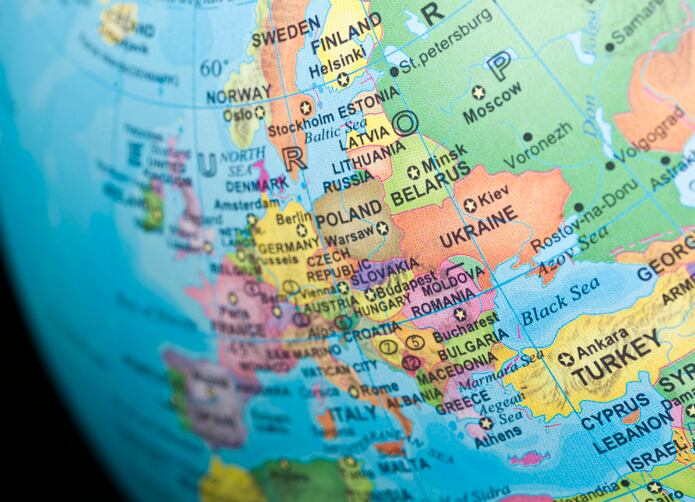Consumer confidence and discretionary spending also could constrict – dampening food sales at restaurants and in select retail categories – depending on how the conflict between the two countries develops and how long it lasts, industry leaders warned at the US Department of Agriculture Outlook Forum on Thursday. They added delivery delays and food insecurity also could increase.
“A lot is going to depend upon exactly how this plays out. Is this the start of a grinding assault that takes a long time, or is it something that matures quickly and settles into a kind of stalemate without making any kind of geopolitical stance. That is what everyone is watching. But either way, it’s not going to be helpful for the supply chain and it is going to drive up inflation,” Andrew Harig, vice president of tax, trade, sustainability & policy development at FMI – The Food Industry Association, warned at the conference.
On the retail side of the food industry, Harig said, the biggest fallout from the developing conflict likely will be rising fuel and energy costs, which are already up exponentially due to the pandemic.
But, he added, the food industry “shouldn’t ignore” the potential impact on edible oils, corn, wheat and other commodities, prices for which were already skyrocketing before the attack. According to Nasdaq, prices of wheat and corn increased up to $8.84 and $6.83 per bushel Feb. 23 compared to $7.19 and $4.95 per bushel Sept. 17.
These could spike higher if fighting continues or escalates between Ukraine and Russia given both countries’ status as crop commodity juggernauts.
Known as the “breadbasket of Europe,” Ukraine is a top producer of sunflower, sunflower oil, barley, corn, rye and wheat. Combined with Russia, the two countries account for 29% of global wheat exports, 19% of the world’s corn exports and 80% of the world’s sunflower oil exports, according to USDA.
While most of these go to the Middle East and Africa, buyers in those regions could turn to other sources, including the US and Canada, depending on how long the conflict disrupts supply. Currently, all commercial vessels in the inland sea of Azov, which connects to the Black Sea, are banned and Ukrainian ports are closed due to the attack.
A far-reaching ripple effect
As pervasive as many of these commodities are in packaged food, the conflict could also impact products not made from these ingredients as manufacturers and retailers take a wholistic approach to balancing prices and their overall margins, suggested one expert.
“This introduces a lot of uncertainty about what the prices are going to look like for the next few months,” Matthew MacLachlan, a research economist in the Food Markets branch of the Food Economics Division at USDA’s Economic Research Service.
He noted that while USDA’s Food Price Outlook is slated for update Feb. 25, the agency may need “to adapt to how this situation unfolds” when it comes to its forecasting.
The industry’s response to rising costs during the pandemic so far could illustrate how the conflict could complicate pricing beyond just the commodities immediately impacted.
During the pandemic, many manufacturers have passed higher costs on to consumers through strategic price increases so that the hikes might not directly correlate with the items that are more expensive to produce. For example, many retailers have tried to hold down prices of staples, prompting manufacturers to raise prices on more discretionary and value-added items.
Likewise, Russia is a major supplier of fertilizer, which if hindered could negatively impact production of other crops globally.
Will consumers ‘tighten up their purse strings’?
To the extent that the conflict drives up energy and gas prices for consumers, the restaurant industry also could see consumer confidence and sales drop just as they were starting to rebound following the latest surge of coronavirus cases due to omicron, warned Hudson Riehl, senior vice president, research and knowledge group at the National Restaurant Association.
“The restaurant industry is essentially a cash-on-hand and credit situation, so anything that puts pressure on the cash-on-hand, whether it’s higher gas prices or other necessary expenditures, that can act to dampen restaurant sales growth,” he explained at the USDA conference.
In addition, uncertainty about how the US and other global leaders will respond and how the conflict could escalate will shake already weakened consumer confidence and increase anxiety levels, he said, noting that historically when this happens consumers “tighten up their purse strings.”
Echoing Harig, Riehl said the extent to which the conflict escalates, and its length will greatly impact consumer response and the impact on foodservice.

